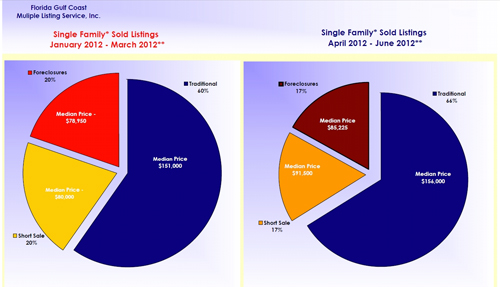The other day a seller was asking me the typical things I hear buyers and sellers say. That question sounds like good material for an article, so this week we’ll focus on the seller side. Things Sellers Say!
- That house was a short sale– Sellers really don’t understand how other sales in area affect their value. A short sale is a compromise by the bank to allow a seller to sell their property at today’s current value. Banks aren’t in the business of taking a larger loss than they should, so the bank typically does its own evaluation to determine the seller has accepted a contract at or close to fair market value. If not, the bank typically counters what they’re willing to accept. Short sales became the new market. Some foreclosures sold too low, and some are in terrible condition. It’s important to compare condition to any sale, and a skilled Realtor or appraiser should take this into account.
- It’s only been on the market a week– We hear this when an offer comes in soon after it hits the market and it’s not quite full price. There’s an old saying that your first offer is usually the best offer. Believe me, this saying is not always true, but I could tell dozens of stories where a seller wish they had that first offer back months after its passing.
- We can always price it high and take less-Sellers think they’ll get more money by asking more, but this is rarely the case. In fact, they typically get less by overpricing it. The overpriced listing sits on the market and becomes stale. Buyers wonder why it’s been on the market so long and they become fearful. When they do eventually offer after several price reductions, they typically offer much less. It’s always best to price it at the market and hopefully attract one or more buyers. This way you avoid becoming stale and having that stigma that something is wrong with the home because nobody wants it.
- I don’t want a sign up because I don’t want my neighbors to know-Your neighbor is going to find out anyway. In fact, your neighbor might be glad to see you go and may know a friend who’s looking in the area. A sign call is always a good call because unlike an ad, a passing buyer knows exactly where it’s located and cared enough to call. The sign is an additional tool that sometimes pays dividends.
- We don’t need to sell– Very few people absolutely need to sell. Many make the choice to sell because a change better suits their needs. I think sellers say this to slow down the process. They are fearful and don’t want anyone taking advantage of them. They want to sell, but want some control over the process. Selling is a process no one party controls. It takes a buyer and seller, and the seller typically is not looking forward to that whole process. This is where a good Realtor can help alleviate that stress and counsel the seller. Sellers feel much better going forward once they understand the process and the true market value.
- If it’s meant to be it will happen– Actually buyers and sellers use this one a lot. To my way of thinking, this is a way of shielding the seller from the tough decisions, a defense mechanism so to speak. I’ve learned in life if you really want something you tend to get what you go for. If it’s to be it’s up to me. If you sit back and let someone else decide your fate, you might not like the outcome. It’s always best to look at all the facts and make a decision. This way you control your own destiny instead of relying on fate. This market is littered with people who put their head in the sand because they felt powerless.
It pays to sit down, look at all the facts, and weigh your options. Analysis paralysis isn’t good either, so after evaluation take action. If you need assistance weighing your options, we’re here to help. Always call the Ellis Team 239-489-4042









